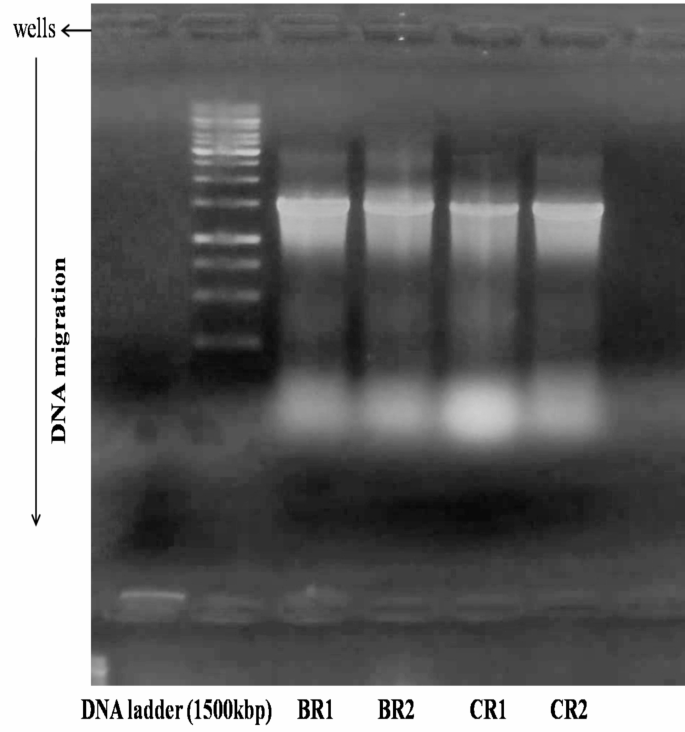
In the face of growing global challenges like soil salinization, researchers are turning to plant growth-promoting rhizobacteria (PGPR) as a promising solution. These beneficial microbes have the remarkable ability to enhance plant growth and development, even under adverse environmental conditions like high salt levels. A recent study by scientists Naveena Radhakrishnan and Chitra Krishnasamy has shed light on the isolation and characterization of salt-tolerant PGPR, paving the way for more sustainable agricultural practices. Their findings could have far-reaching implications for improving crop yields and resilience in areas affected by soil salinity.
Unraveling the Complexity of Soil Salinity
Soil salinization is a global problem that poses a significant threat to agricultural productivity. It can occur naturally due to factors like climate, parent material, and groundwater, or it can be exacerbated by human activities such as improper irrigation and poor drainage. High levels of salts, including sodium, magnesium, calcium, chloride, and sulfate, can disrupt plant metabolism, stunt growth, and even lead to crop failure.
Harnessing the Power of Beneficial Bacteria
Enter plant growth-promoting rhizobacteria (PGPR). These soil-dwelling microorganisms have the remarkable ability to enhance plant growth and development, even in the face of abiotic stresses like salinity. PGPR can directly stimulate plant growth through a variety of mechanisms, such as:
- Producing phytohormones like auxin and cytokinin to regulate plant development
- Solubilizing phosphate and potassium to improve nutrient availability
- Fixing atmospheric nitrogen to supplement plant nutrition
- Synthesizing siderophores to chelate iron and make it more accessible
- Producing hydrogen cyanide and ammonia to suppress plant pathogens
Isolating and Characterizing Salt-Tolerant PGPR
In their study, Radhakrishnan and Krishnasamy set out to identify and analyze salt-tolerant PGPR from the rhizosphere soil of beetroot and carrot cultivation areas in the Nilgiri district of Tamil Nadu, India. Through a series of rigorous experiments, they were able to isolate four bacterial strains with exceptional salt stress tolerance:
- Solibacillus silvestris BR1
- Peribacillus frigoritolerans BR2
- Paenibacillus taichungensis CR1
- Solibacillus isronensis CR2

These strains were further characterized using advanced techniques like 16S rRNA sequencing, which confirmed their identities and revealed their genetic relationships to other known bacterial species.
Unveiling the Plant Growth-Promoting Potential
The researchers then proceeded to assess the ability of these salt-tolerant PGPR to produce various plant growth-promoting compounds, such as:
- Indole acetic acid (IAA): A key auxin that regulates plant growth and development
- Phosphate solubilization: The conversion of insoluble phosphate into a form that plants can readily absorb
- Ammonia production: A source of nitrogen for plant nutrition
- Hydrogen cyanide (HCN): A volatile compound that can suppress plant pathogens
- Siderophores: Iron-chelating molecules that enhance nutrient availability

Their findings revealed that the isolated bacterial strains, particularly Solibacillus isronensis CR2 and Paenibacillus taichungensis CR1, exhibited remarkable abilities to produce these plant growth-promoting compounds, even under high-salinity conditions.
Implications and Future Directions
The work of Radhakrishnan and Krishnasamy holds great promise for the future of sustainable agriculture. By harnessing the power of salt-tolerant PGPR, farmers and researchers can potentially:
- Improve crop yields and resilience in areas affected by soil salinization
- Reduce the need for chemical fertilizers and pesticides, thereby promoting more Click Here
This article is made freely available to the public under a Creative Commons Attribution-NonCommercial-NoDerivatives 4.0 International License. This license allows anyone to share, distribute, and reproduce the content in any medium or format, as long as they give proper credit to the original author(s) and the source, and provide a link to the license. However, you are not permitted to make any adaptations or derivative works from this article or its parts. The images or other third-party material included in this article are also covered by the same Creative Commons license, unless otherwise stated. If you wish to use the material in a way that is not allowed by the license or exceeds the permitted use, you will need to obtain direct permission from the copyright holder.
